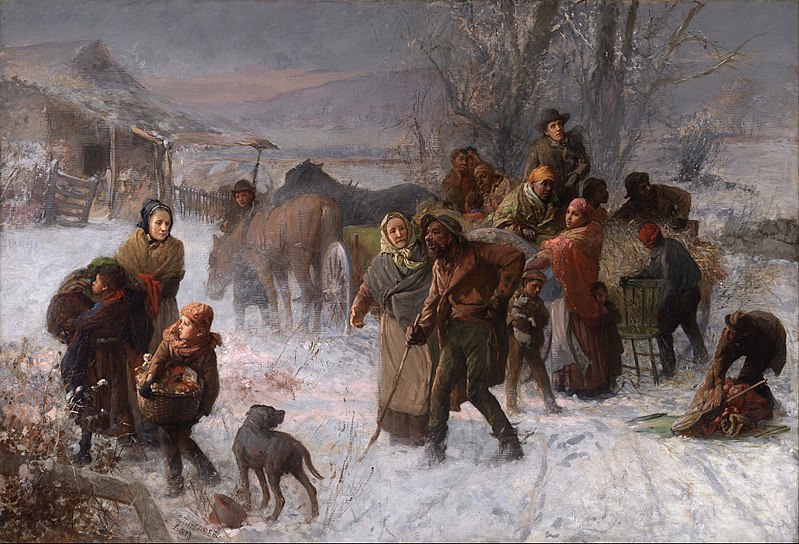Gallery with alias: PUBLIC_HISTORY_BLOG_POSTS not found

Public historians–those who preserve, interpret, and share our local history–have a responsibility not only to bring us the facts, but also to help us think more broadly and deeply about history.
Today, the historians’ typical tool kit–old photographs, faded documents, stoic roadside markers, and boring “catalog of facts” history lessons–must include new ways of educating, entertaining, and inspiring us. At the Social Voice Project, we believe digital media should be considered a useful, innovative, and exciting new tool for public historians–one that will help re-shape understandings of history in ways better suited to our time.
Public history is pedagogy. Skilled and effective educators know that learning takes place when we address students’ needs and expectations. Public historians should understand this same dynamic in the era of digital media and the internet.
Here’s an example.
The thought-provoking short video below, “What Do Our Schools Fail To Teach About Slavery?,” is a feature of Huffington Post’s Behind the Lines digital media project; it “starts with a simple question. In exploring the answer, we discover new things about our identities, our communities, and our world. Turns out, that question wasn’t so simple after all …”
In describing this video, Huffington Post writes: “Slavery was the cause of the Civil War. Yet, some students are only just learning this today. This is partly because, after the war ended, some white southerners started organizations dedicated to promoting textbooks that taught that the war wasn’t about slavery, but rather about “states’ rights.” These false narratives continue to affect the way students are being taught Civil War history today. So why aren’t they taught the truth? And how does our failure to teach about slavery’s brutal legacy affect our ability to solve the issues facing our country today?”
During Black History Month, we are inspired by this digital media project to think more deeply about topics related to the African American experience. So, we turn to our own local history for insight.
Beaver County, Pennsylvania (where we are located) has contributed significantly to the African American experience. At times, our radical history has been at the fore of two great American social movements–labor unionism and abolition. Let’s take the latter topic.
Through our local history podcasting initiative throughout Western Pennsylvania, we’ve learned that many Northerners fighting the Civil War did so primarily, by their own admission, to preserve the union.
There was in our region, history tells us, commonplace indifference toward ending slavery. It’s “just a southern thing,” was a typical sentiment, a “southern fault.” But history also reminds us that many Western Pennsylvanians were fiercely abolitionist. They viewed slavery as our “greatest national sin” that must be stopped by any means necessary–even if by war among the states.
Today, as the video reveals, Americans still hold differing opinions as to the role of slavery in sparking the Civil War. These differing understandings of slavery continue to shape our political, social, and economic landscapes and influence our attitudes about race–all of which still impact and affect African Americans most deeply.
Public historians, such as the media producers at Huffington Post, help us sort through these historical issues. Some public historians will, unapologetically, take sides on certain historical questions. What we the public conclude, of course, is up to us.
PUBLIC HISTORY MATTERS
At The Social Voice Project, we celebrate history and people through our community oral history projects that give us a chance to look, listen, and record the voices and stories of our time. We encourage all local historical societies and museums to capture, preserve, and share their communities’ lived experiences, memories, customs, and values. Future generations are depending on it.
Contact TSVP to learn more about our commitment to public history and community oral history projects.
MORE ESSAYS & THOUGHTS ON PUBLIC HISTORY

You must be logged in to post a comment.